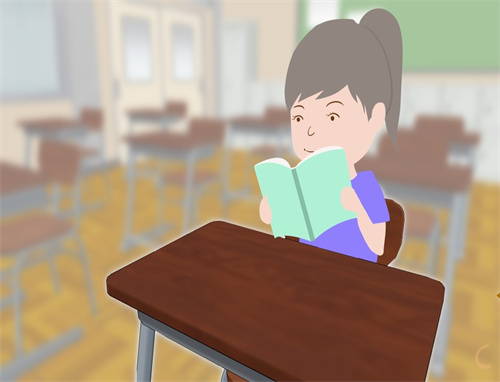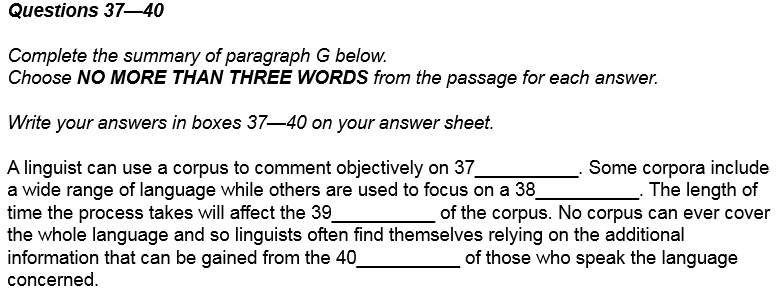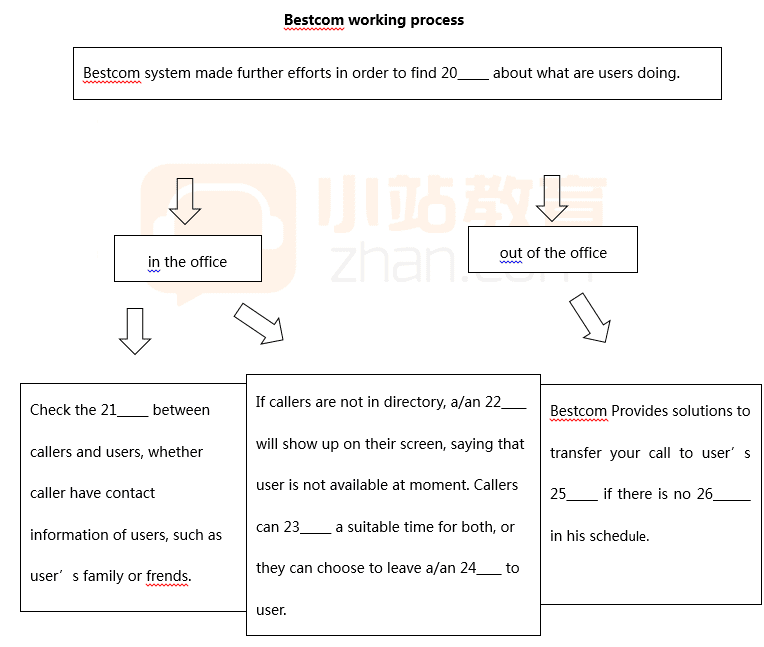文章由段落构成,段落由句子结合逻辑构成,句子由词和词组结合语法构成,即:文-段-局-词 四个维度。下面小编就和大家分享从题型层面剖析托福阅读备考,来欣赏一下吧。
从题型层面剖析托福阅读备考
词:(词汇题)
考查词汇,首先重“量”。没有一定的词汇量,寸步难行。---词汇题中很大一部分就是考查单词的直接含义,如果认识该单词与选项,几乎可以立刻匹配,秒选正确答案。如果同学在这一部分出现问题,务必好好积累词汇量,词到病除。
除了量,还需要考查学生能否理解该单词放入文本环境(context)后产生的细微、甚至与原意大相径庭的引申含义。---词汇题中真正造成困扰的部分正是考查单词文本含义的,需要考生将单词放入语境细致考查是否通顺,才能选出答案。
词汇题每篇至少3题,一套阅读至少9题,占总题量近25%,可见词汇之重要。而词汇更是阅读最小也是最基础的单位,如果词汇不过关,隐患无穷,导致其他题目做错,实在是首要中的首要。
句:(句子改写Paraphrase,句子插入insert,句子目的purpose,事实信息题facts,否定排除题non-facts,推理题infer)
句子改写题Paraphrase:考查单个句子的理解。要求学生去对单独一个句子(通常是长难句,长在哪?难在哪?)理解后选出选项中意思最接近的一项,即在不改变原句核心含义的前提下改写原句。想要改写一个句子,其必要条件必是对该句子彻底深入的理解,抓住核心内容,理清句子逻辑。
句子目的题 Purpose:一个句子除了有表义性(传递信息),还有“结构性”(服务作者的写作意图)。Why does the author mention .......作者为什么要提到....考查学生对作者写作意图、句子功能的理解
句子插入 Insert:在理解单个句子的基础上,考查学生对多个句子内容及关系的把握。将一个句子插入到段落中合适的地方,必然要考查学生对“被插入句子”本身及上下文多个句子之间内容和逻辑上的联系。
事实信息题Facts与否定事实信息题non-facts:在具备了理解单个句子及多个句子含义、功能之后,考查阅读能力的核心要素“提取信息”即“获取知识”的能力(看书读报的目的不就是获取信息吗?)对于“提取信息”从两方面考查----“是否准确”与“是否全面”。
“是否准确”---即事实信息题,基于原文,获得信息,回答针对一个事实信息的提问,如果答对了,即可认为你获得的信息是准确的。
“是否全面”---即否定排除题。原文可能提供对于一个主体多方面多层次的介绍,在大量信息中把回答问题所需要的信息全部筛选出来,把不符合要求的答案去除,体现了对信息掌握的全面。
推理题 Infer:在获取原文提供的最基本的信息后,能否通过逻辑思维做出最基本的一些推理或判断?
如:根据“人类属于哺乳动物,哺乳动物是胎生的”是否可以得出“人类是胎生的”这一结论?
段:(段落主旨题Main Idea, 段落结构题 Organization , 段落关系题 Relationship)
古人写作,原本是没有段落,也没有标点之分的。将多个,内容上服务于同一主旨,的句子,按照一定的秩序(结构)排列起来,就形成了段落。考生能否理解一段话想表达的主要观点?这需要一定的总结能力;能否发现该段句子究竟以什么秩序(结构)来排列?
而两段话之间,又从内容上有什么样的联系?
文:(全文主旨题,多选匹配题)
托福阅读中其实并没有真正意义上对全文内容理解的考查,或者说非常的少。之所以将全文主旨题和多选匹配罗列于此,仅因为从某种意义上该类题目需要读完全文后才可作答。而实质上,全文主旨题其实还是对多个段落内容的总结;多选匹配是对讨论对象信息的提取,与事实信息题即为相似,只不过要从全文范围的内找信息。
做题过程中比做题更重要的是什么?
1. chain of thoughts 完整的思维链条至关重要
2. Flexible Mind 弹性思维,灵活地阅读,灵活地处理问题,绝非依葫芦画瓢
3. 良好的做题习惯(如读完全部题干,不跳读;圈画关键词;不漏读选项等,细节决定成败,习惯决定细节)
托福阅读高分练习素材之有学识的表现
One thing I have found out is that how smart or how educated a person is has nothing to do with how many years he spent in school. I have seen plenty of people who graduated from college who don't have the sense God gave a turkey - in other words, they were educated beyond their intelligence - and plenty who stopped even before they graduated from high school who have done an excellent job of educating themselves.
I suppose the necessary quality would be motivation. I'm not sure how anybody would make it through four years of college and still be as, . . .um, unknowing as the day they entered. Or twelve years of high school for that matter. We provide twelve free years of education, or I should say thirteen since kindergarten is now included in most states. I guess we'll always have someone blaming the teachers if a child comes out not knowing how to read.
Let me get off my soapbox and continue with the purpose of this piece, which is to let you know that there are some shortcuts for people who would like to be a little more educated than they are. Lots of people dropped out of school for this reason or that, and now wish they could go back and redeem their learning, but feel like they have too big of a mountain to climb.
As an educator, I can tell you that you do not have to go back and learn every single item that you should have learned in school. In fact, the vast majority of people don't remember most of that information. There are certain things that help a person have an aura of being more learned, and here I have tried to distill this down to its very essence.
1. Build your vocabulary. It may not be fair, but most people judge how educated a person is by the words they use. A Roget's Thesaurus will do the trick, as will any number of vocabulary building books. Also, cut out the curse words. A person with a great store of words to use does not need to rely on vulgar language as a crutch.
Learning a great variety of words will give you more of a store to draw from. People who read a lot tend to have wider vocabularies than those who do not, which is probably how the idea got started that more intellectual you are, the more words you will know.
2. Read out loud from a book. This sounded silly to me when I first heard it. A friend said that he was trying to get some of the "country" out of how he talked and somebody had told him to try this. Oddly enough, it worked. You don't have to come out sounding like a national news anchor, just do it enough to get to where you want to be.
3. Invest in a book of quotations. Find a Bartlett's Familiar Quotations or some similar book. Just read over it. You'll be surprised to find that a lot of familiar sayings came from one of three sources: the Bible, Shakespeare, or Poor Richard's Almanac by Ben Franklin. Just being familiar with all the old saws of the English Language and where they came from will give you a smug feeling. Most people don't know this information.
4. Get one book with a synopsis of each of Shakespeare's plays. I had to take a Shakespeare class in college. Fortunately, I had one of these books that I happened to have picked up. I didn't have time to read the entire plays as they were assigned, so I read the synopsis. This gets the job done! Get familiar with the characters as well as the events. A lot of cultural references are based on Shakespeare.
5. Ditto with the Bible. Even if you don't believe the Bible, it doesn't hurt to be acquainted with the stories in it.
6. Get a GED book and work through it. The GED tends to be looked down on as a secondary, or "Good Enough Diploma." As a GED teacher, I can tell you that if you know enough to pass the GED, you have an education.
7. Read Cliff's Notes or MasterPlots. Get familiar with the characters and plots of most of the major works of literature.
8. Keep up with current events. Read the newspaper. Read the national news. Read all the national news magazines. You can go to the library and do this, they usually will have subscriptions to the major newspapers and magazines. Even though most magazines have a slant, usually liberal, this will teach you to read with an open mind. Take the information that you can use and discard the rest.
9. Know the history of your area. This is history come to life. Knowing about where you live is the very least you should know.
10. Show some curiosity. The more questions you ask, the more you wind up knowing. It's a fact that the smarter a person is, the more he realizes he doesn't know, and therefore asks questions.
You have made a good start by reading my enlightening piece. You're a little smarter already! Now get going, go learn some stuff.
托福阅读真题原题+题目
By the turn of the century, the middle-class home in North American had been transformed. The flow of industry has passed and left idle the loom in the attic, the soap kettle in the shed, Ellen Richards wrote in 1908. The urban middle class was now able to buy a wide array of food products and clothing — baked goods, canned goods, suits, shirts, shoes, and dresses. Not only had household production waned, but technological improvements were rapidly changing the rest of domestic work. Middle-class homes had indoor running water and furnaces, run on oil, coal, or gas, that produced hot water. Stoves were fueled by gas, and delivery services provided ice for refrigerators. Electric power was available for lamps, sewing machines, irons, and even vacuum cleaners. No domestic task was unaffected. Commercial laundries, for instance, had been doing the wash for urban families for decades; by the early 1900's the first electric washing machines were on the market.
One impact of the new household technology was to draw sharp dividing lines between women of different classes and regions. Technological advances always affected the homes of the wealthy first, filtering downward into the urban middle class. But women who lived on farms were not yet affected by household improvements. Throughout the nineteenth century and well into the twentieth, rural homes lacked running water and electric power. Farm women had to haul large quantities of water into the house from wells or pumps for every purpose. Doing the family laundry, in large vats heated over stoves, continued to be a full day's work, just as canning and preserving continued to be seasonal necessities. Heat was provided by wood or coal stoves. In addition, rural women continued to produce most of their families' clothing. The urban poor, similarly, reaped few benefits from household improvements. Urban slums such as Chicago's nineteenth ward often had no sewers, garbage collection, or gas or electric lines; and tenements lacked both running water and central heating. At the turn of the century, variations in the nature of women's domestic work were probably more marked than at any time before.
1. What is the main topic of the passage ?
(A) The creation of the urban middle class
(B) Domestic work at the turn of the century
(C) The spread of electrical power in the United States
(D) Overcrowding in American cities.
2. According to the passage , what kind of fuel was used in a stove in a typical middle-class household?
(A) oil
(B) coal
(C) gas
(D) wood
3. Which of the following is NOT mentioned as a household convenience in the passage ?
(A) the electric fan
(B) the refrigerator
(C) the electric light
(D) the washing machine
4. According to the passage , who were the first beneficiaries of technological advances?
(A) Farm women
(B) The urban poor
(C) The urban middle class
(D) The wealthy
5. The word reaped in line 23 is closest in meaning to
(A) gained
(B) affected
(C) wanted
(D) accepted
6. Which of the following best characterizes the passage 's organization?
(A) analysis of a quotation
(B) chronological narrative
(C) extended definition
(D) comparison and contrast
7. Where in the passage does the author discuss conditions in poor urban neighborhoods?
(A) lines 3-5
(B) lines 6-7
(C) lines 8-9
(D) lines 22-23
PASSAGE 45 BCADA DD
托福阅读相关文章:
★ 学习资料库
★ 英语阅读
★ 学习资料库
★ 大学英语学习计划书
★ 读《夏洛的网》有感5篇400字最新范文
★ 托福改革后首考落幕 新增“托福移动考点”
★ 短期内提升托福听说读写的方法
★ 部编版初中英语比较级教案范文合集总汇
从题型层面剖析托福阅读备考
四个维度。下面小编就和大家分享从题型层面剖析托福阅读备考,来欣赏一下吧。从题型层面剖析托福阅读备考词:(词汇题)考查词汇,首先重“量”。没有一定的词汇。下面小编给大家分享从题型层面剖析托福阅读备考,希望能帮助到大家。 从题型层面剖析托福阅读备考文档下载网址链接:
上一篇:托福阅读精读练习小攻略
下一篇:新托福阅读之基础理解和篇章应用





